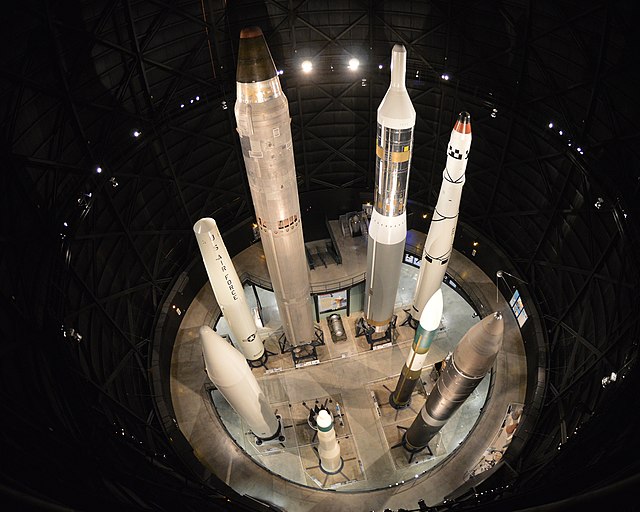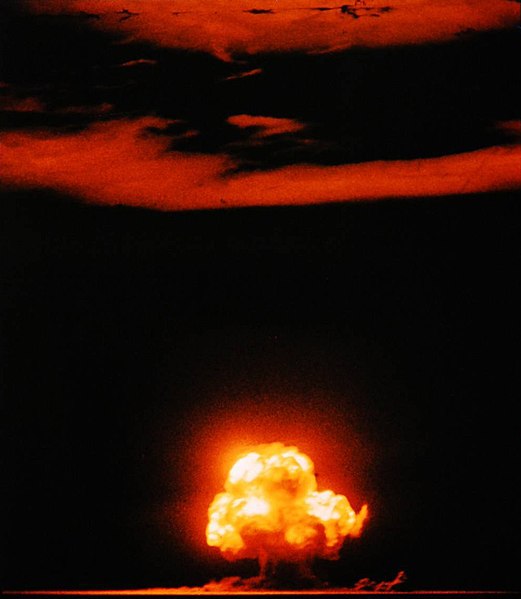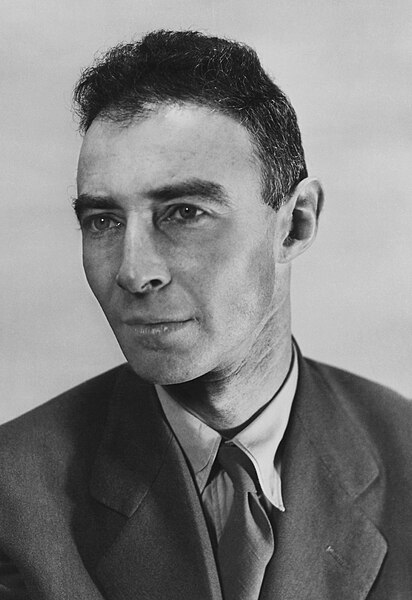Nuclear terrorism refers to any person or persons detonating a nuclear weapon as an act of terrorism. Some definitions of nuclear terrorism include the sabotage of a nuclear facility and/or the detonation of a radiological device, colloquially termed a dirty bomb, but consensus is lacking. In legal terms, nuclear terrorism is an offense committed if a person unlawfully and intentionally "uses in any way radioactive material … with the intent to cause death or serious bodily injury; or with the intent to cause substantial damage to property or to the environment; or with the intent to compel a natural or legal person, an international organization or a State to do or refrain from doing an act", according to the 2005 United Nations International Convention for the Suppression of Acts of Nuclear Terrorism.
United States Army soldiers wearing NBC suits during a simulated nuclear terrorist attack training exercise in McCormick, South Carolina in 2011
The announcement of the United States' Global Threat Reduction Initiative at the International Atomic Energy Agency's headquarters in Vienna, Austria in 2004
A nuclear weapon is an explosive device that derives its destructive force from nuclear reactions, either fission or a combination of fission and fusion reactions, producing a nuclear explosion. Both bomb types release large quantities of energy from relatively small amounts of matter.
An assortment of American nuclear intercontinental ballistic missiles at the National Museum of the United States Air Force. Clockwise from top left: PGM-17 Thor, LGM-25C Titan II, HGM-25A Titan I, Thor-Agena, LGM-30G Minuteman III, LGM-118 Peacekeeper, LGM-30A/B/F Minuteman I or II, PGM-19 Jupiter
The Trinity test of the Manhattan Project was the first detonation of a nuclear weapon, which led J. Robert Oppenheimer to recall verses from the Hindu scripture Bhagavad Gita: "If the radiance of a thousand suns were to burst at once into the sky, that would be like the splendor of the mighty one "... "I am become Death, the destroyer of worlds".
J. Robert Oppenheimer, principal leader of the Manhattan Project, often referred to as the "father of the atomic bomb".
Edward Teller, often referred to as the "father of the hydrogen bomb"






